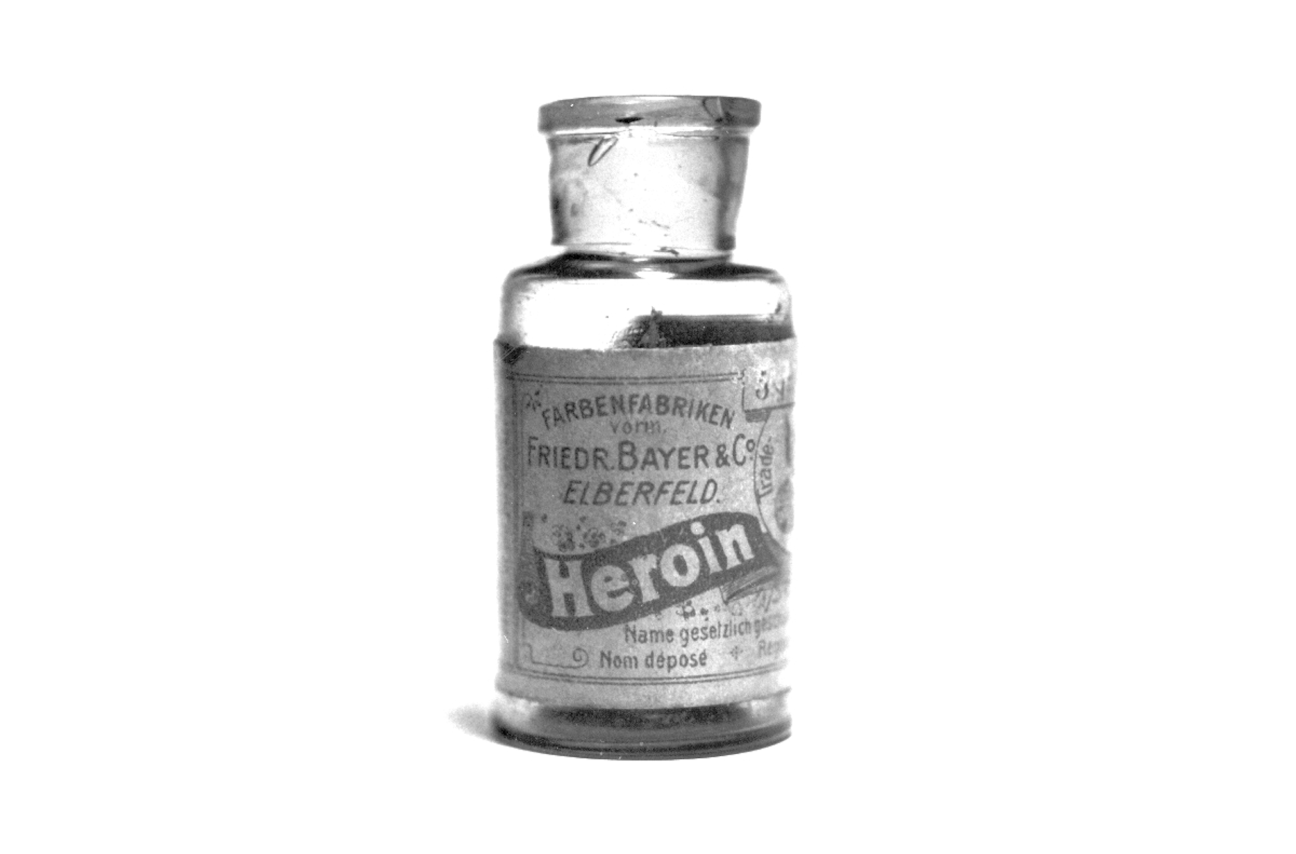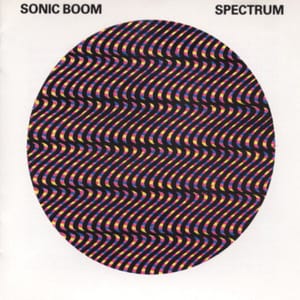Sonic Boom Angel (1989)
Seeking a non-addictive alternative to morphine, English chemist C.R. Alder Wright became the first person to synthesize heroin in 1874 by boiling anhydrous morphine alkaloid with acetic anhydride. Wright's invention was set aside shortly thereafter, but in 1897, chemists at the German pharmaceutical company Bayer re-synthesized the substance.
By the following year, Bayer had begun marketing heroin as a cough suppressant and pain relief medication, promoting it as a less addictive alternative to morphine. The drug was sold over the counter and widely prescribed for conditions such as tuberculosis and pneumonia. Tragically, it was even used to treat morphine addiction: a practice that had catastrophic consequences.

By 1913 Bayer had recognized heroin’s addictive nature and ceased production. However, its recreational use had already spread rapidly, fueled by the drug's accessibility on the black market. Over the course of the 20th century, heroin would contribute to a devastating epidemic, claiming millions of lives.
Beyond the staggering death toll, each life lost leaves a profound impact on the loved ones left behind. English musician Pete Kember, known as Sonic Boom, experienced this pain firsthand when a friend succumbed to a heroin overdose.
A master of psychedelic and experimental music, Kember—no stranger to drug experimentation himself as exemplified by his band Spacemen 3’s iconic album Taking Drugs to Make Music to Take Drugs to—wrote a poignant song in tribute to his friend. First released in 1989, the track titled “Angel” is our song of the day.

Start the conversation
Become a paid member of The Rest to gain access to the comments section.